Immigrant and Refugee Stories: Ink Knows No Borders
Poetry offers a creative outlet for writers to explore their emotions, experiences, and dreams for the future. It offers extraordinary literary...
AP & Honors Mathematics
Explore Wiley titles to support both AP and Honors mathematics instruction.
Literacy Skills & Intensive Reading
Connections: Reading – Grades 6–12
Empower student success with a proven intensive reading program that develops strong reading skills in striving readers.
Drama, Speech & Debate
Basic Drama Projects 10th Edition
Build students’ confidence and competence with comprehensive, project-based theatre instruction.
Literature
Connections: Literature
Support learners as they study dynamic, relevant texts and bring the richness of diverse voices to students through literature.
Literature & Thought
Develop critical thinking, reading, and writing across literacy themes, genres, historical eras, and current events.
Language Arts
Vocabu-Lit® – Grades 6–12
Help students build word power using high-quality contemporary and classic literature, nonfiction, essays, and more.
Connections: Writing & Language
Help students develop grammar, usage, mechanics, vocabulary, spelling, and writing and editing skills.
Reading/English Language Arts
Measuring Up to the English Language Arts Standards
Incorporate standards-driven teaching strategies to complement your ELA curriculum.
English Language Learners
Measuring Up for English Language Learners
Incorporate research-based best practices for ELLs with an approach that includes a focus on language acquisition strategies.
Mathematics
Measuring Up to the Mathematics Standards
Incorporate standards-driven teaching strategies to complement your mathematics curriculum.
Foundations
Measuring Up Foundations
Help students master foundational math skills that are critical for students to find academic success.
Science
Measuring Up to the Next Generation Science Standards
Give students comprehensive NGSS coverage while targeting instruction and providing rigorous standards practice.
Assessment
Measuring Up Live
Deliver innovative assessment and practice technology designed to offer data-driven instructional support.
For a better website experience, please confirm you are in:
3 min read
Jennifer Epping Jul 7, 2022 11:21:59 AM
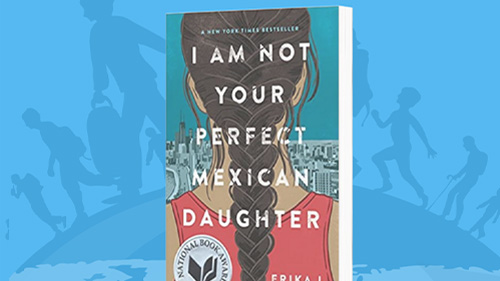
Something I think students with siblings might be able to relate to is competing with each other to please their parents or be the best. In some cases it’s all in good fun, but other times young teens might feel pressure to match their sibling’s grades, experiences, or behavior.
In I Am Not Your Perfect Mexican Daughter by Erika L. Sánchez, the main character Julia feels the (not-so-fun) expectation of being just like her older sister Olga (who is perfect in their mother’s eyes). When Olga is killed in a tragic accident, Julia tries to pick up the pieces of her family, which only adds to that pressure. As Julia starts trying to understand her sister’s life, she finds out that Olga wasn’t as perfect as they all thought. Should she continue to strive to be like Olga, or was it all just a façade?
Julia finds school boring overall, but loves her English teacher Mr. Ingman because “he treats us like we’re adults, like he actually cares about what we think and feel.” (28) One lesson he creates involves choosing favorite English words and explaining why.
This lesson is taken directly from Mr Ingman's in the book, and can be replicated in your own classroom. Use the passage below, how Mr Ingman closes his lesson, as the starting point for your lesson.
"The words you choose can tell us a lot about yourself,” he says. “In this class, I want you to learn to appreciate—no, wait—I want you to love language. Not only will I expect you to read different texts and learn how to analyze them in smart and surprising ways, I expect you to learn hundreds of new words. See, I’m teaching you standard English, which is the language of power…It means that you will learn to speak and write in a way that will give you authority. Does that mean that the way you speak in your neighborhood is wrong? That slang is bad? That you can’t say on fleek or whatever you kids are saying these days? Absolutely not. That form of speaking is often fun, inventive, and creative, but would it be helpful to speak that way in a job interview? Unfortunately not. I want you to think about these things. I want you to think about words in a way you’ve never done before.” (30–31).
Interested in buying any of the books mentioned in this post? Visit our classroom libraries page.
Download the lesson below to easily print or save!
Jennifer Epping is a high school English and journalism teacher in Des Moines, Iowa. She has a passion for reading, writing, and making lame jokes to her students just to see them laugh or roll their eyes. She just concluded her ninth year teaching. Epping graduated from Iowa State University with a BS in journalism and mass communication (2010) and BA in English Education (2013). She attended New York University’s Summer Publishing Institute (2010), and spent some time in children’s book publishing in New York.
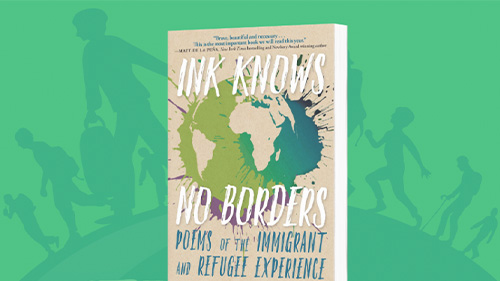
Poetry offers a creative outlet for writers to explore their emotions, experiences, and dreams for the future. It offers extraordinary literary...
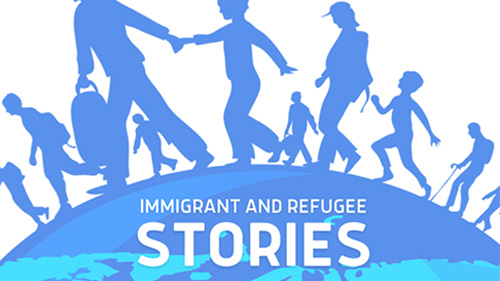
The best part of my job is the gift of diversity and the stories I get to prompt students to produce in a creative way through narratives, short...
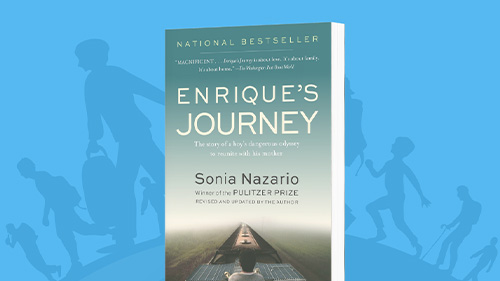
There’s something to be said about putting yourself in another person’s shoes. Even if those shoes will never fit perfectly, and you struggle to stay...

September is here, which marks the start of the new school year, new routines, new classes, and new friendships!
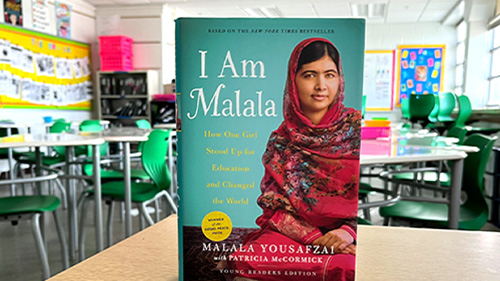
In recent months, the Taliban in the Middle East has taken over once again after American troops removed themselves. The first person I thought of...
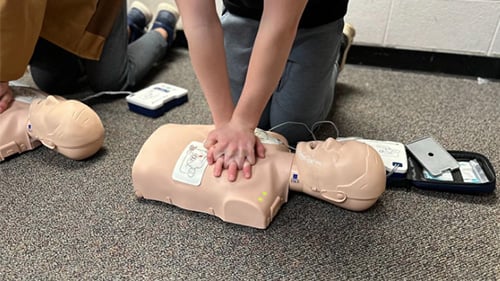
In the first blog post of the Rhetoric Meets Remedy series, I discussed the importance of teaching for transfer. Teaching for transfer is vital...

Laura Kebart (English Language Arts Teachers) shares strategies for 6-8 ELA teachers for creating rubrics that center student improvement. {%...

In recent months I learned, along with others around the world, of the horrific stories of the mass unmarked grave sites of Indigenous, or...

Many lessons ran through my mind while reading There There by Tommy Orange. We could talk about the parallel plot text structure; we could talk about...

In the previous blog posts of this series, I shared how I’ve transformed my English classroom into a collaborative space where students aren’t just...

Over the course of my career as a middle school ELA teacher, I’ve graded more writing pieces than I can count. I’ve graded late into the night, on...

It’s that time! The school year is beginning and you’re ready to welcome up to 180 new learners into your classroom. Whether you’re in your first...
